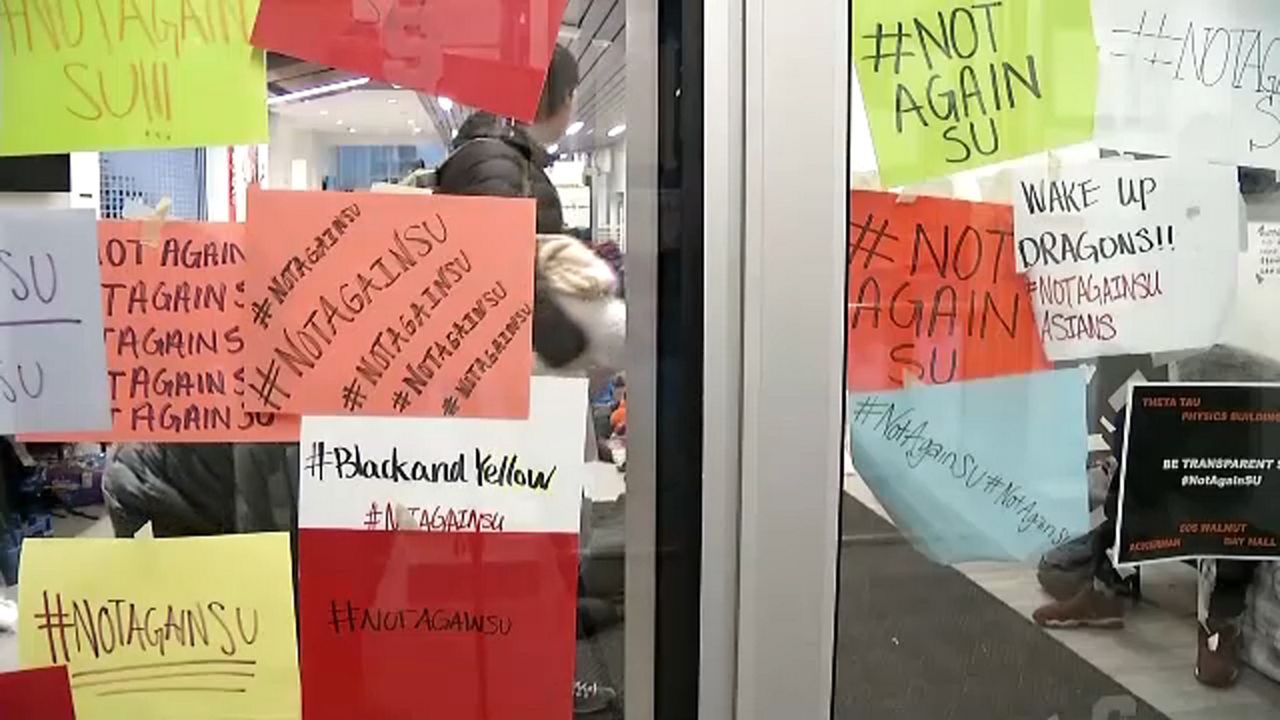Syracuse University “fell short” in response to bias incidents on campus in 2019 and the student protests that followed, according to Chancellor Kent Syverud.
Former U.S. Attorney General Loretta Lynch and a team of independent investigators reviewed SU’s Department of Public Safety’s conduct and performance in 2019-20. The 97-page review found the main issues with DPS are transparency, accountability, communication, and translating good intentions into action and change. The team collected DPS documents, email records and interviews from 77 witnesses over the last year.
Report on SU Department of Public Safety by Luke Parsnow on Scribd
“It is clear where we fell short,” said Syverud in a statement Monday.” It is also clear that many of our students, particularly students of color, experienced the hate incidents on our campus in deeply personal and distressing ways. At times, actions taken by the University, including by DPS, exacerbated that fear. We let you down. I am committed to ensuring we do better to rebuild and strengthen trust and mutual respect among our campus community.”
Over a two-week period in November 2019, there were a dozen hate incidents reported at SU. That led to two weeks-long protests in the university’s Barnes Center and Crouse Hinds administration building.
Last spring, officers used force and denied students basic necessities, according to student protesters.
“DPS officers implemented instructions and directives issued by the administration,” the report found. “The situation was both tense and fluid, and those instructions and directives were frequently modified.... Combined with frustrations and concerns about DPS on the part of many students that preceded the Crouse-Hinds Hall protest, this situation created deep distrust of DPS and damaged the faith and confidence in DPS of many in the campus community.”
The key conclusions from the report include:
- DPS not following its Standard Operating Procedure while investigating and documenting bias-related incidents
- DPS’s handling of the protest at Crouse-Hinds hall created deep distrust and damaged the faith and confidence of many in the campus community
- DPS should strengthen its community policing ethos, because many officers do not embrace the principles and many students do not perceive DPS as embodying the community policing philosophy
- DPS and university administration should streamline promptly and accurate information after racist and anti-Semitic misconduct because the community needs to feel safe
“On the whole, we have found that the University is facing many of the same complex and difficult questions and challenges as the rest of the country when it comes to ensuring the safety of a large, diverse group of people who have varying attitudes toward and experiences with law enforcement,” the report concluded.
The review is the first step in building a community that is welcoming to everyone, Syverud said. In the coming days, he will share how the university will implement Lynch’s recommendations.
“We note that rebuilding trust does not happen overnight and urge both DPS and the University community to commit to the ongoing work, dialogue, and active listening required to improve this important relationship,” the report concluded.



